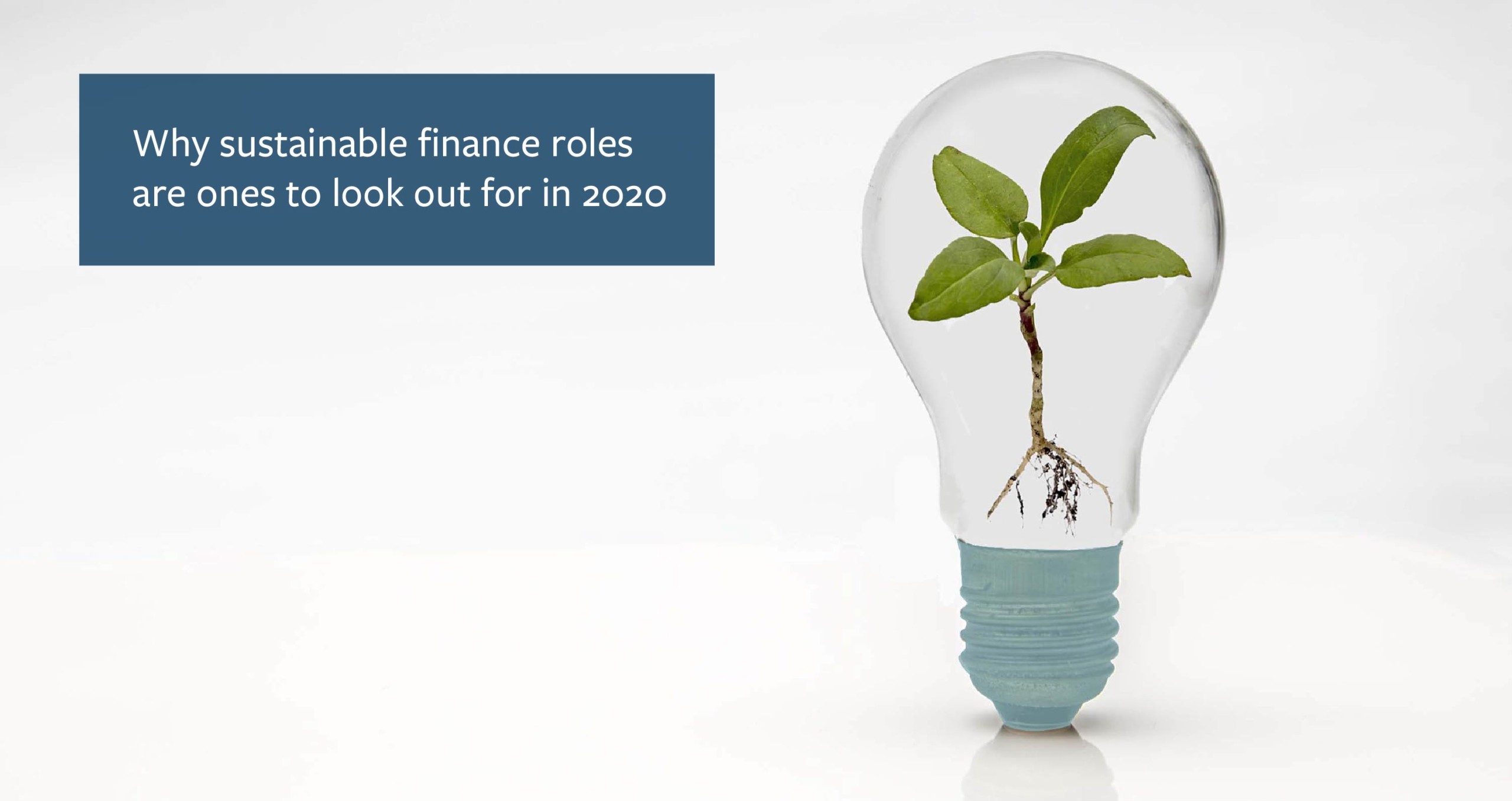Why sustainable finance roles are ones to look out for in 2020
As a society, we are becoming increasingly aware of the threat posed by climate change and its impacts on people, the workplace and the environment we inhabit. People are striving to be more sustainable and are adopting greener practices with the aim of reducing their carbon footprint. This is no different from international organisations, who are also starting to adapt business models to become greener and as a result, sustainable and green finance is on the rise, becoming a key priority for many.
So, what does this mean for sustainable/green roles in the workforce, and can we expect to see a rise in these types of contingent roles?
Global perspectives
Globally Green Finance is worth $31 trillion and is expected to rise in 2020. 2019 saw many organisations transition to a green financial system, with the aim of investing in clean and resilient growth by financing environmentally friendly activities and projects, that could act as a catalyst for both sustainability and economic growth.
The UK launched its net zero carbon Strategy on 2 July 2019, in the hopes to achieve a net zero environment by 2030. The strategy supports the UK’s economic policy for strong, sustainable and balanced growth, the delivery of our modern industrial strategy and their domestic and international commitments on climate change, the environment, and sustainable development.
Green bond standards and green banking regulations were introduced in The People’s Bank of China, to help encourage regulated growth. The German national Development Bank belongs to the largest Green Bond issuers globally and Australia’s cumulative green bond issuance is 10th in cumulative global country rankings, 3rd in the Asia-Pacific region behind China and Japan.
India has now become the second-largest market for Green Bonds with $10.3 billion transactions. Green bonds were developed to fund projects that have a positive environmental or climate impact. India scores highly in global rankings in attractiveness for sustainable sector investments, primarily coerced by its policy push towards increasing renewable energy. A missing piece of the puzzle, however, is a substantial amount of dedicated green capital that exists locally in the Indian markets. This has started with dedicated green funds slowly finding their ground.
What is currently being done?
The Indian environment ministry estimates that India will need $2.5 trillion to meet climate change targets, of which $280 billion is needed in the next five years for green infrastructure alone as well as the workforce to implement said changes. The City of London has recently been exploring steps to ‘supercharge’ this sector in India in particular, to reduce barriers to investments in order to accelerate the sector’s development. Steps include the introduction of financing mechanisms that are tailored to the Indian landscape, with increased transparency and greater visibility of opportunities and funding gaps. Also believed necessary is the introduction of targeted policy reforms and incentives, such as changes to the External Commercial Borrowing (ECB) guidelines by the Reserve Bank of India for issuers with ‘green’ track records.
What roles will be required?
There is vast potential in this sector waiting to be unlocked and sustainable and green financing are expected to grow exponentially in the next year. Contingent roles in this space will rise, as many organisations will need support in updating their policy and procedures to ensure that Green Finance and sustainable investment procedures can flourish. Key roles will include sustainability consultants, strategy heads and investment analysts, to name a few, will be needed to give organisations the ‘know how’ on what measures to put in place, what investments to look out for and what risks are associated with becoming greener
Next steps
The global journey towards Green Finance is in the early stages and will require involvement from the entire financial value chain. Players from international banks, investors, stock exchanges and regulators, will need to develop greener agendas to mitigate the climate crisis. Read more about how you can become a Momenta Associate.

